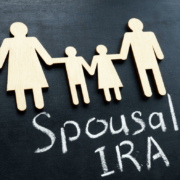Taxes and Coronavirus: Frequently Asked Questions (FAQ)
- Learn about tax deadline extensions for 2019 tax returns and payments.
- Find out about changes to IRA contributions for 2019.
- Find out if corporation taxes are affected by extended deadlines.
- Discover if estate and trust income taxes are affected.
- Find out what to do if you can’t file by July 15, 2020.
- Learn about relief for tax filings that are late.
- Learn how to safely connect with your Fiducial representative during this time.
The COVID-19 outbreak is affecting every facet of our lives – including our taxes. We’re sure you have questions about how to deal with the tax changes just enacted, and Fiducial has the answers to your frequently asked questions about how you may be impacted. Visit Fiducial’s Coronavirus Update Center for more information on Coronavirus federal and state tax updates as well as emergency relief services
Q: Has the government extended the filing deadline?
A: Yes, the federal government has extended the April 15 filing deadline for 2019 tax returns to July 15, 2020. Please check with your Fiducial representative about whether or not your state extended the deadline.
Q: Has the government postponed the deadline to pay my taxes?
A: Yes, as a result of extending the filing due date and as a result of a previous postponement, the time for taxpayers to pay their 2019 taxes is extended until July 15, 2020. Please check with your Fiducial representative regarding any postponement available for your state tax.
Q: Is April 15 still the last day I can make an IRA contribution for 2019?
A: No, the last date to make an IRA contribution is the same as the tax return filing due date, so you now have until July 15, 2020, to make the contribution.
Q: Are corporation taxes affected by the extended filing due date?
A: Yes, the filing due date for calendar year C-corporations has also been extended to July 15, 2020. As a result of extending the filing due date, the payment of taxes and filing of estimated taxes has also been extended.

Q: Are estate and trust income taxes also extended?
A: Yes, the estate and trust income tax return due date has been extended to July 15, 2020. Therefore, any tax payments are also extended.
Q: If I can’t file my return by July 15, what can I do?
A: You can file a tax extension using Form 4868 which gives you until October 15, 2020, to file your return.
Q: What about relief for other types of tax filings?
A: The IRS has not provided a payment extension for the payment or deposit of any other type of federal tax (including payroll taxes and excise taxes) or for the filing of any tax return or information return.
Q: Is there any tax relief for other types of tax filings that are late?
A: Yes, taxpayers may seek relief under certain provisions of the tax code that allow the IRS to waive penalties by reason of casualty, disaster, or other unusual circumstances, the imposition of such addition to taxes would be against equity and good conscience.
Q: What should I do if I have an appointment with my Fiducial representative in the near future?
A: Most are now handling appointments remotely by phone, email and documents exchanged digitally by secure means. You should contact your Fiducial representative for details.
Need help navigating the tax changes caused by COVID-19? Call Fiducial at 1-866-FIDUCIAL or make an appointment at one of our office locations. For more small business COVID-19 resources, visit Fiducial’s Coronavirus Update Center to find information on SBA loans, tax updates, the Paycheck Protection Program, paid sick and family leave, and more. Ready to book an appointment now? Click here. Know someone who might need our services? We love referrals!









